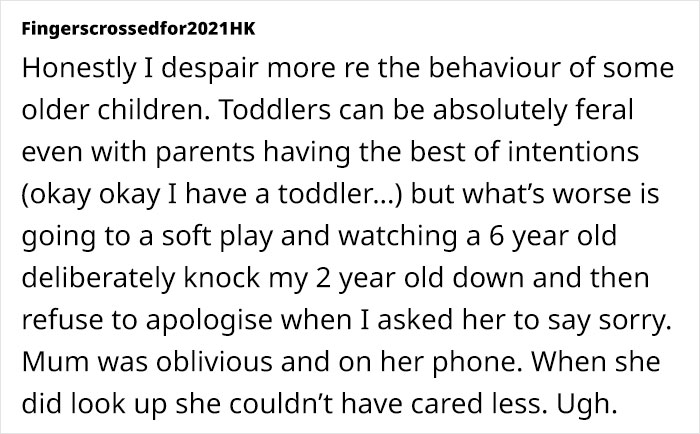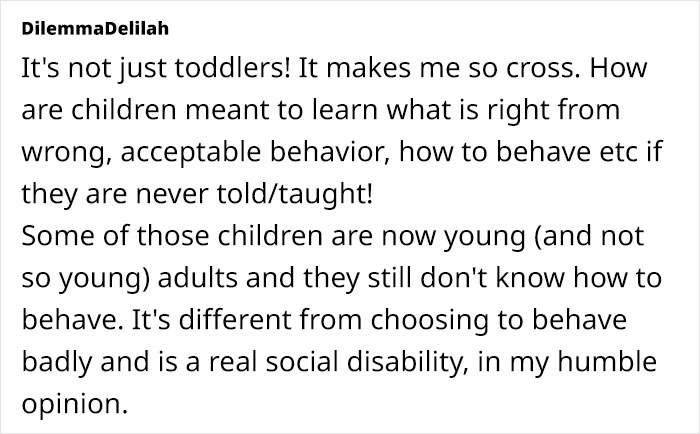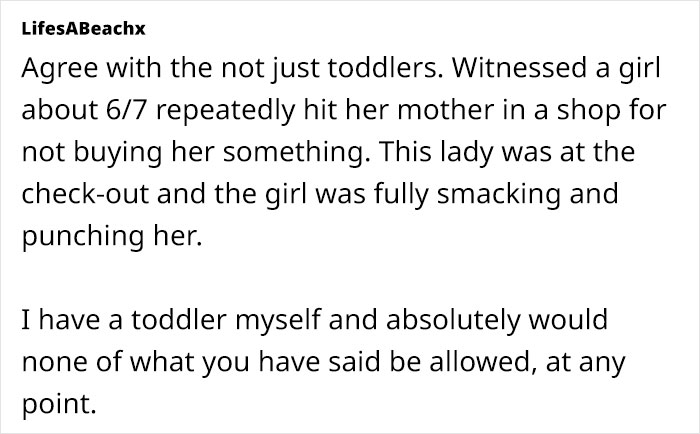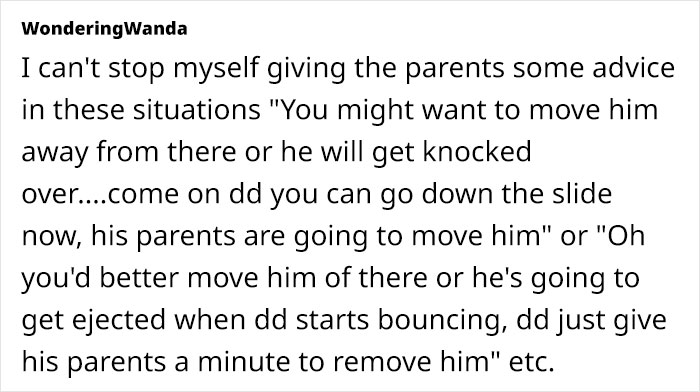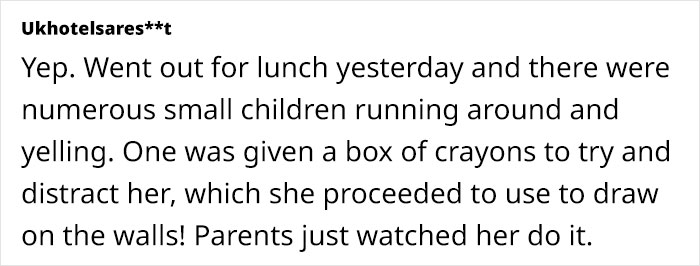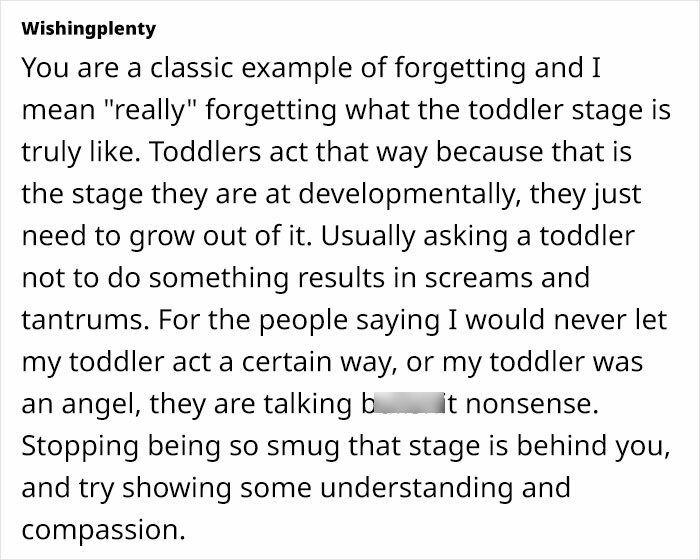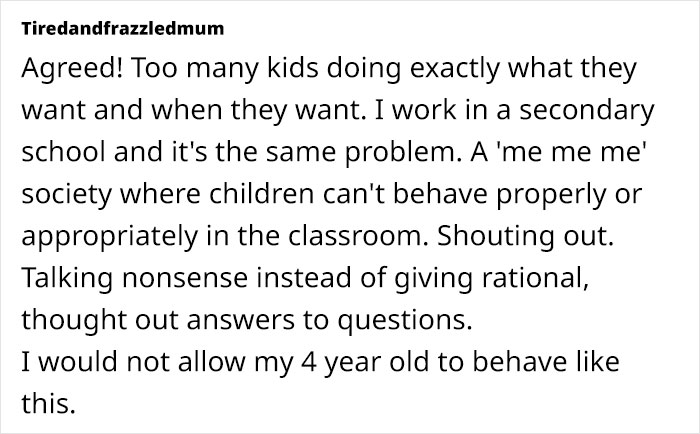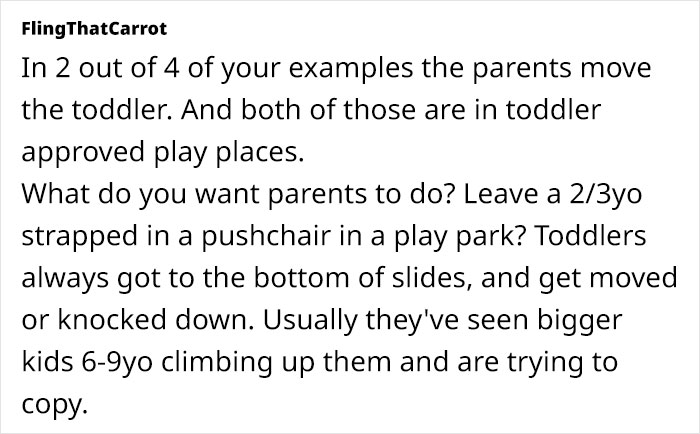As a child, one stern gaze from my mom was all it took to subdue me into acting like a good kid when we were out in public. Gone are those good old days when positive disciplining was the norm of the parental world, as many controversial parenting methods have started popping up today.
This mom was also very unhappy with how parents these days think it’s “cute” when their kids act chaotic in public places. Plus, this unruly behavior of toddlers was also annoying her daughter—whom she suspects has mild autism—so she sought advice online.
More info: Mumsnet
With all the new parenting styles popping up, parents often forget to implement positive discipline in kids
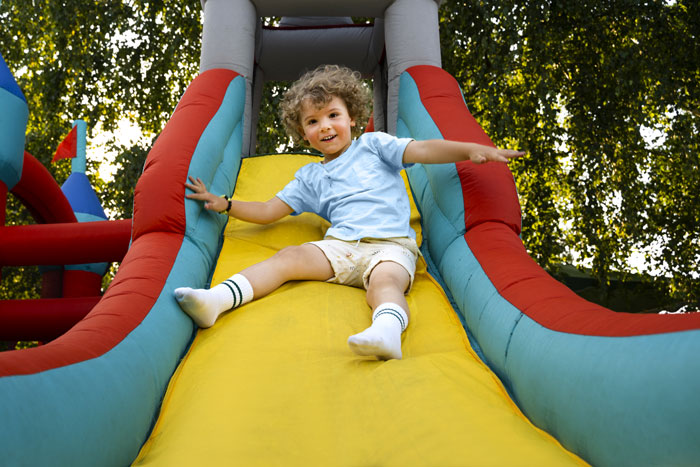
The poster narrates how, in one day, she observed kids being chaotic in public while their parents didn’t do anything about it
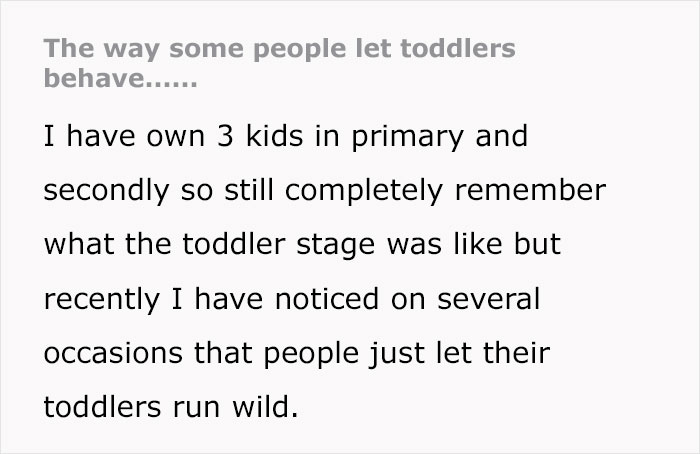

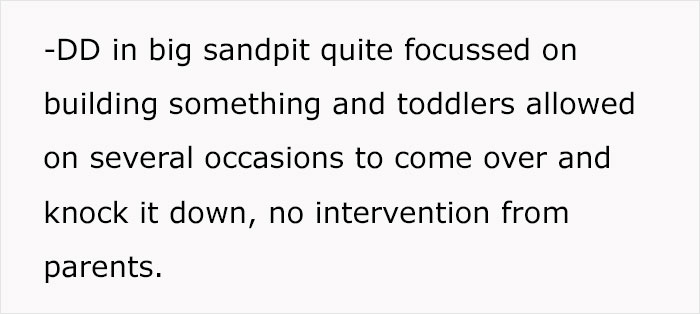
Image credits: Purpleturtle46
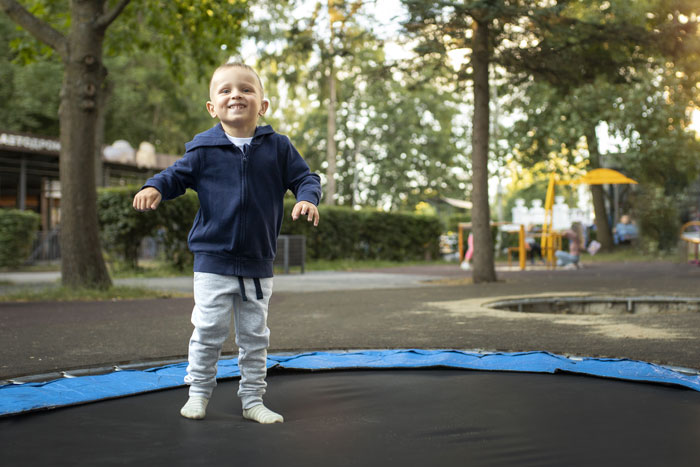
Many such wild acts from toddlers on the playground also frustrated her daughter, whom she suspects has mild autism
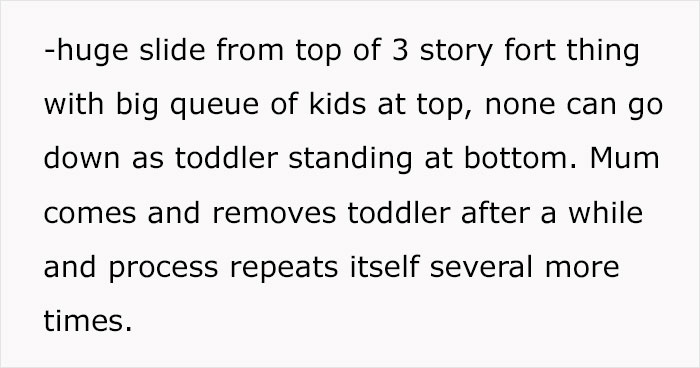
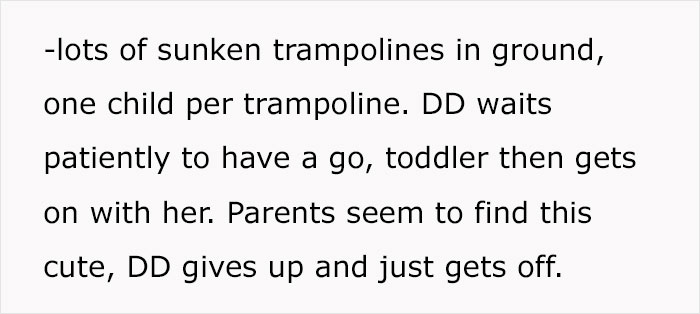
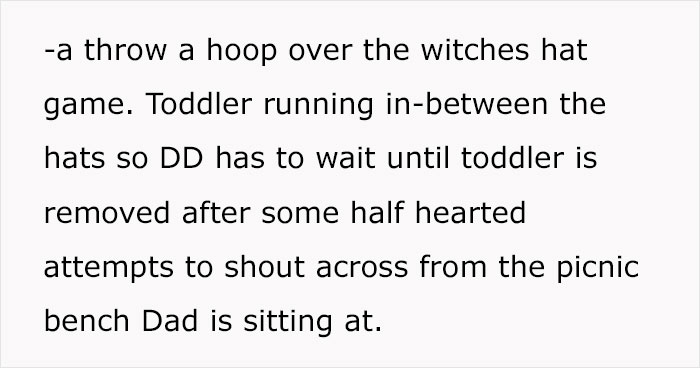
Image credits: Purpleturtle46
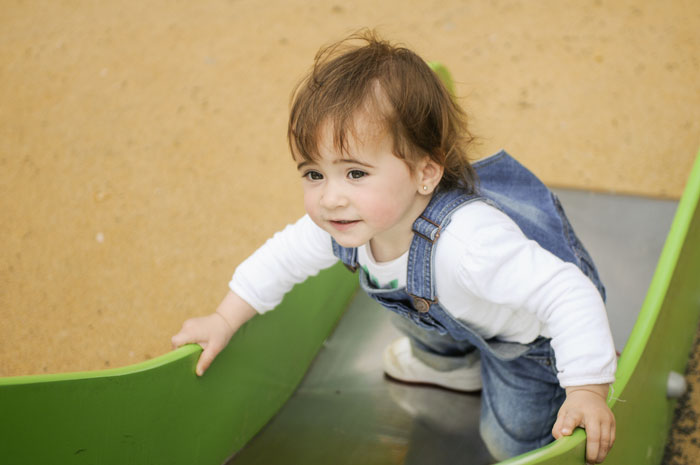
She also explained how she herself has 3 kids but she always taught them about turn-taking and other such necessary things as she thinks that’s how they learn

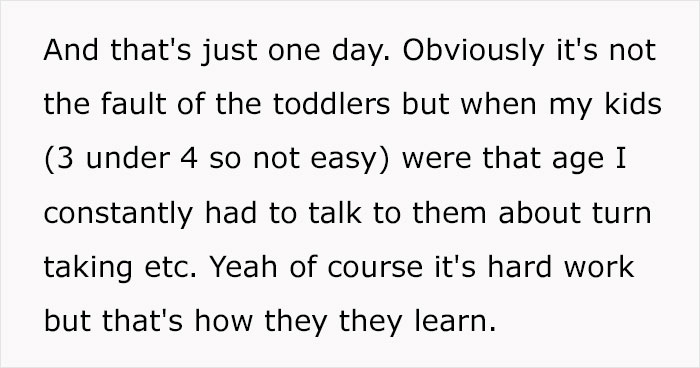
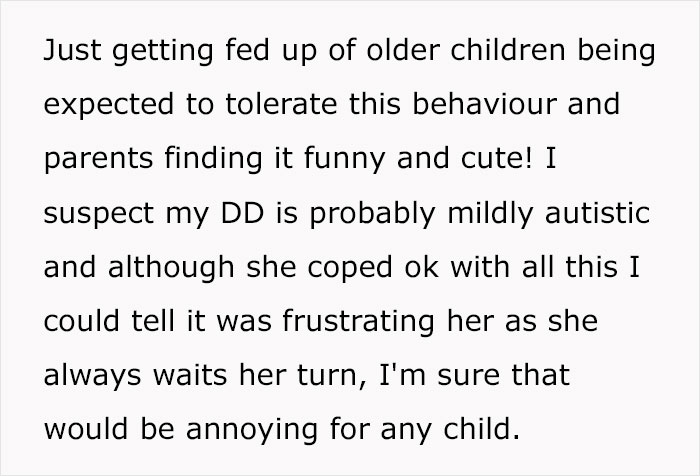
Image credits: Purpleturtle46

She says she feels torn while teaching her kids the balance between tolerance and also standing up for themselves because of how toddlers behave
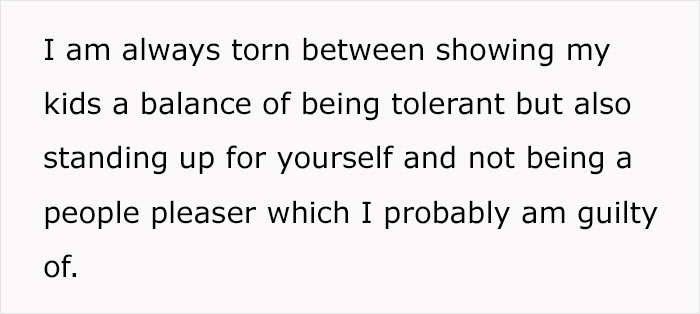
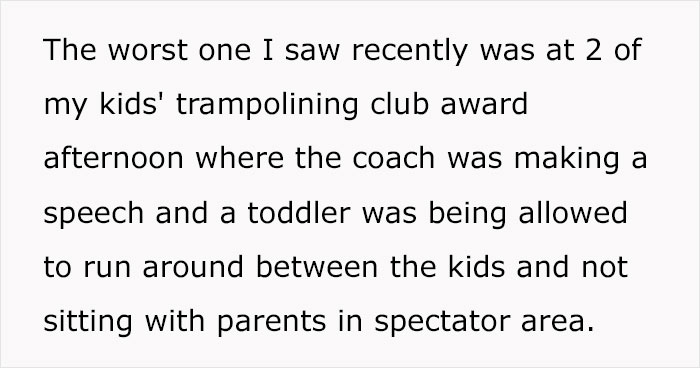
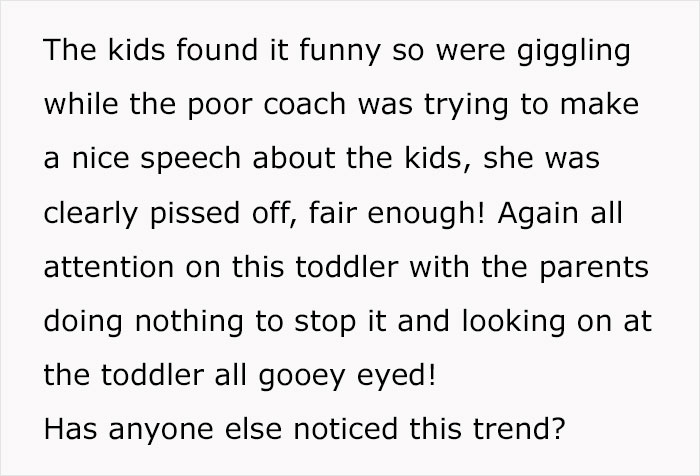
She says that she has noticed the trend that parents these days find it “cute and funny” when their toddlers run wild in public places while inconveniencing other people
In today’s story, the original poster (OP) tells us about the absurd things she noticed toddlers do, all in one day, while the parents just let them go wild. After she vented online about it, many folks agreed that they had also noticed these incidents where kids went rogue and parents didn’t even discipline them.
To get deeper insights about the matter, Bored Panda reached out to Dimple Manoj Melwani, mental health lead and senior clinical psychologist at Sumunum Arts and Wellbeing. She said that disciplining toddlers is crucial for their development, with various strategies showing different effectiveness depending on the child’s behavior.
“Offering alternatives is generally the most effective tactic for reducing noncompliance, while reasoning works well for parent-oriented noncompliance but less so for oppositional behavior. The frequency and range of disciplinary strategies increase as children age, with positive strategies peaking between 6-12 months and negative strategies between 12-18 months,” she added.
The things that also frustrated the poster were the way the parents reacted to the disruptive behavior of their kids, even when it was causing problems for other people around them. She explained how she suspects her daughter has mild autism, and she was frustrated when toddlers knocked her sandpit buildings down or didn’t take turns seriously when using playsets.
OP also spoke about instances when such annoying behavior by kids was found to be “cute and funny” by their parents who watched them “all gooey-eyed”. This inaction from parents made the people in the comments question the parenting style of such couples.
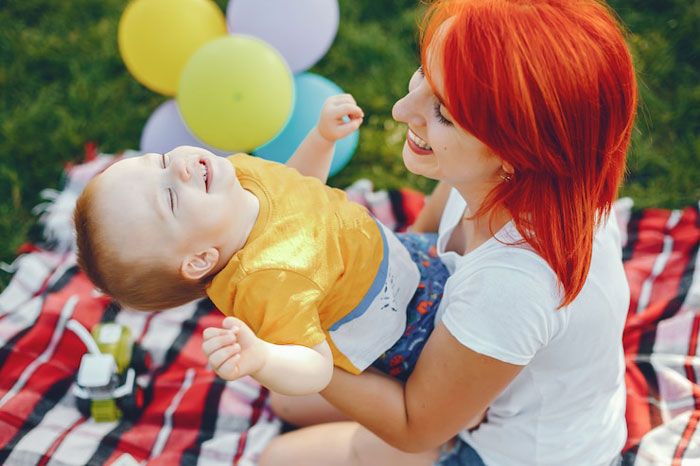
Dimple explained how research suggests that disruptive behavior in toddlers can be influenced by parental factors and responses. She emphasized that parents experiencing low self-efficacy and high stress are more likely to react negatively to challenging child behavior, potentially reinforcing disruptive tendencies.
“Emotional flooding in parents is associated with hostile discipline, particularly in families with toddlers exhibiting disruptive behavior problems. Parental personality traits, especially aggression, can significantly impact a child’s disruptive behavior. Addressing parental cognitions, emotions, and skills may be crucial in managing and preventing disruptive behavior in young children,” she added.
When we asked Dimple about parents’ reactions to their children’s disruptive behavior, she noted how research suggests that constant leniency toward disruptive behavior can significantly impact a child’s social and emotional development.
She stressed that teaching parents to set boundaries while reinforcing positive behaviors helps children learn self-control, empathy, and effective communication skills. Lastly, she added that this dual approach encourages children to develop the social competencies needed to navigate peer interactions, reduce conflicts, and build healthier relationships.
Dimple ended the interview with some thought-provoking advice about how implementing a culturally sensitive approach to parenting that combines child-led exploration with structured guidance can be beneficial. She suggested that strategies like using natural and logical consequences to teach respect for others’ space can be integrated into everyday routines.
She also claimed that social skills training can help toddlers understand and practice empathy, respect, and appropriate social boundaries, supporting their development into well-adjusted individuals who can navigate both personal freedom and social responsibility.
Well, now that you know the whole scenario, feel free to jot down your thoughts in the comments below!
Most netizens agreed with her as they had also experienced similar things, but there were a few who felt she was in the wrong
